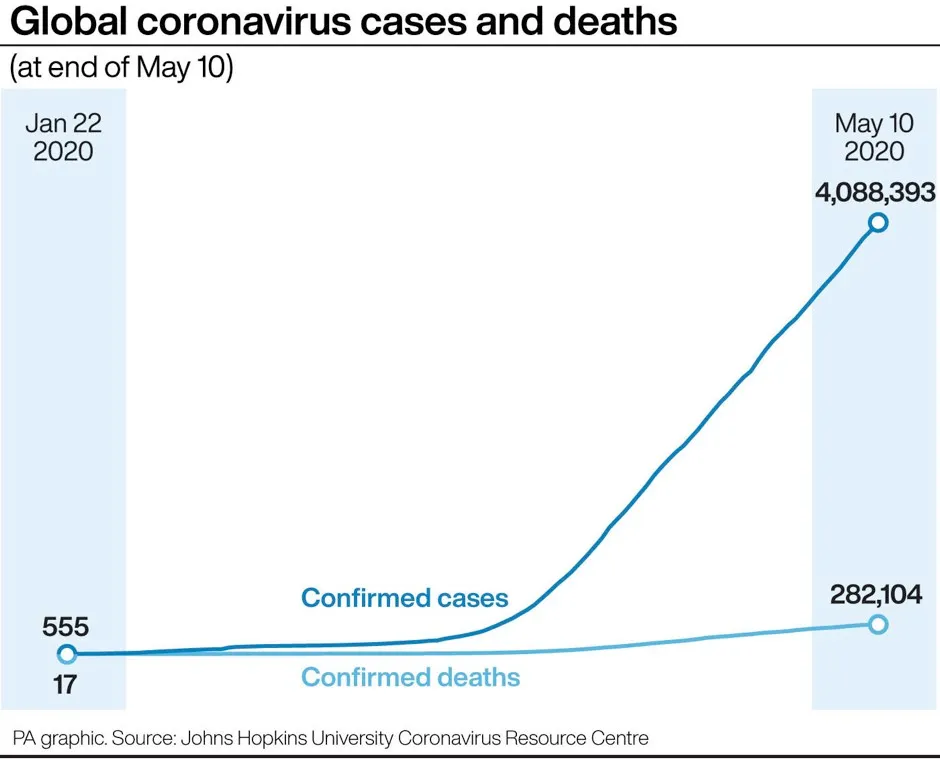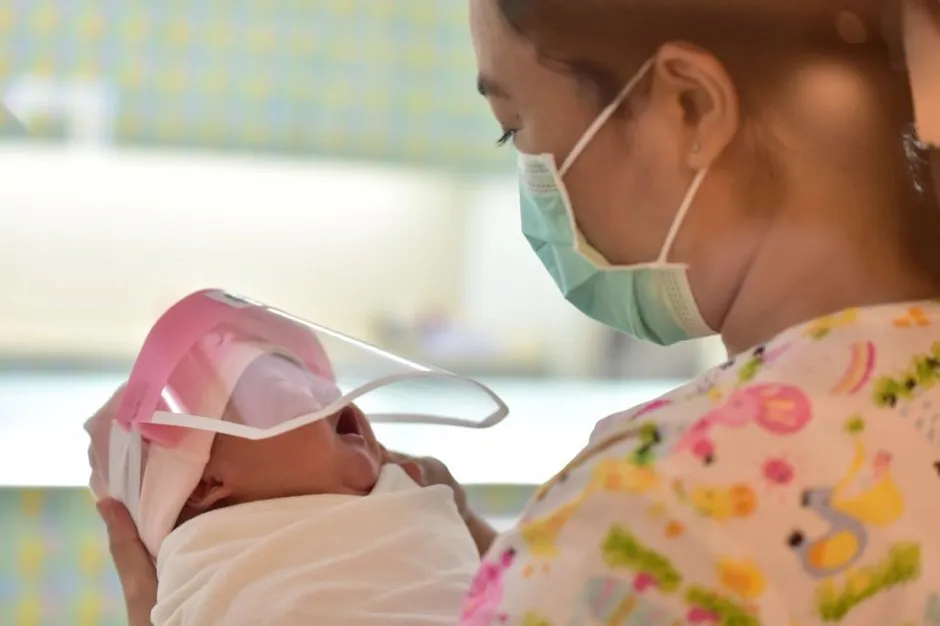Pregnant women are not at greater risk of severe coronavirus than other women, new research suggests.
However, the majority of pregnant women who did fall severely ill were in the later stages of their pregnancy – in the third trimester – indicating the importance for them to socially distance.
According to the study, expectant mothers from black and other minority ethnic groups were more likely to be admitted to hospital with COVID-19.
Older women, those who were overweight or obese, and pregnant women with pre-existing conditions such as high blood pressure and diabetes were also more likely to be admitted to hospital, researchers say.
The study, published as a pre-print and therefore yet to vetted by a group of scientists who will assess if the science stands up,looked at 427 pregnant women admitted to hospitals in the UK between 1 March and 14 April with confirmed COVID-19 – 4.9 women out of every 1,000 pregnant women.
The scientists say this suggests pregnant women are not at a higher risk of experiencing severe illness.
Read the latest coronavirus news:
- New coronavirus 'knowledgebase' uses AI to accelerate COVID-19 research
- Coronavirus 'targets proteins' found at higher levels in men with heart failure
- Could antibodies found in llamas help us to defeat COVID-19?
When looking at women from black and ethnic minority backgrounds, researchers found the inequality persisted even when women from London, the West Midlands and the North West were excluded from the analysis.
This indicates the difference cannot be explained by higher rates of coronavirus infection in those areas.
Women who were admitted to hospital with COVID-19 in pregnancy were less likely to smoke than a group of comparison pregnant women, the study also suggests.
The paper also reports that one in five babies born to mothers admitted to hospital with the virus were born premature and were admitted to a neonatal unit.
One in 20 babies born had a positive test for coronavirus, but only half of them immediately after birth, suggesting transmission of infection from mother to baby is low, researchers say.

Marian Knight, professor of maternal and child population health at the Nuffield Department of Population Health, University of Oxford and lead investigator for the study, said: “A very small number of pregnant women do become severely ill with COVID-19 and sadly some women have died.
“Our thoughts must remain with their families.
“It is concerning that more pregnant women from black and minority ethnic groups are admitted with COVID-19 in pregnancy and this needs urgent investigation.
“Most pregnant women who were admitted to hospital were more than six months pregnant, which emphasises the importance of continued social distancing measures in the later stages of pregnancy.
“Following the current guidance about careful social distancing will help prevent infection.”
How to stay safe during the coronavirus pandemic:
- Coronavirus: Should we all wear face masks?
- Is hand-washing really the best thing we can do to stop the spread of COVID-19?
- 5 mental health apps to help you through the coronavirus crisis
Some 60 per cent of the women admitted to hospital have now given birth, while the others have ongoing pregnancies.
Most of the women have now been discharged home, with around one in 10 women needing intensive care. Five of the women in the study have died.
Outcomes for babies born to mothers with COVID-19 were mostly good.
Although almost one in five were born prematurely and were admitted to a neonatal unit, fewer than 20 babies were born very premature – when their mothers were less than 32 weeks pregnant.

Gill Walton, chief executive of the Royal College of Midwives, said: “It’s absolutely vital that women continue to attend antenatal appointments to ensure that they and their babies are well.
“Staying in touch with their maternity services team will help put any concerns at ease and enable them to act quickly when necessary.”
Information for the study was collected from all 194 hospitals in the UK with a consultant-led maternity unit.
The study was conducted by researchers from the University of Oxford, in collaboration with the Royal College of Obstetricians and Gynaecologists, the Universities of Leeds and Birmingham, Kings and Imperial Colleges London.
How do viruses make us ill?
Viruses are extremely tiny parasites made of genetic material, wrapped in proteins and sometimes an outer membrane layer, which hijack living cells to reproduce themselves. We’re exposed to viruses every day, but our immune system prevents the vast majority of them from taking hold – especially those that we’ve fought off before, or been vaccinated against.
The first stages of an infection happen when a virus gets past our physical barriers of skin and mucus, and enters a suitable cell. Once inside, a virus can take over the cell, forcing the cell to make many copies of the virus (replicate), which damages the cell and sometimes kills it. The newly-made viruses are released to find a new cell. We get ill when a virus has established an infection in many cells, and our body’s normal functioning changes.
Viruses often infect specific places in our bodies, which is where we feel their effect. Rhinoviruses infect our upper airways behind our nose, and we respond with snot and sneezes: a common cold. Thecoronavirus that emerged in 2019(called SARS-CoV-2) infects our lower airways, including our lungs, leading to pneumonia.
Our body fights viruses by creating an inflammatory response and calling in specialist cells from our tissues and organs. Some of these cells can make antibodies against the virus, some destroy the infected cells, and others build a memory of the virus for next time. Some of the things that make us feel ill – snot, fever and swollen lymph nodes, for example – are due to our body’s battle to get rid of the virus, not because of the virus itself.
Read more:
